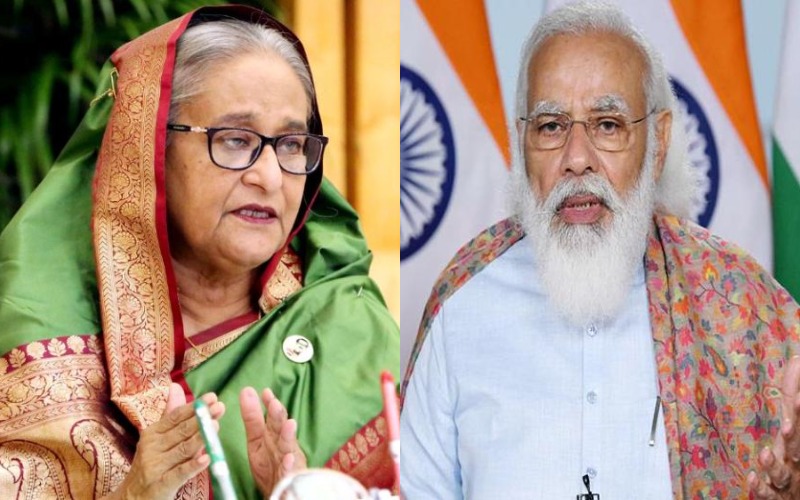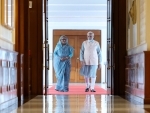South Asia
 Bangladesh-India
Bangladesh-India Modi's visit to Bangladesh can act as a new chapter in regional politics: Amjad Ayub Mirza
Glasgow, March 22: Human rights activist Amjad Ayub Mirza has said Indian prime minister Narendra Modi's upcoming visit to Bangladesh can act as a new chapter in regional politics and build an invincible economic partnership between the neighbouring nations.
"Prime minister Narendra Modi will be visiting neighbouring Bangladesh on March 26. This is the first time in 15 months that Narendra Modi is paying a visit to a foreign country. All this time Modi jee has been spearheading the war against Corona for which the world rightfully has applauded his efforts," Mirza wrote in his opinion piece published in banglanews24.
"Now that India has successfully developed its own Corona Vaccine Modi jee has begun to share it with the neediest. He will be taking along with him nine million doses of corona vaccine of which two million doses are a free gift from India. India does not only preach Neighbourhood First policy she practices it as well," he said.
Mirza said India under Modi has faithfully been extending help to all its neighbours.
"India did not hesitate one bit when Pakistan placed a request to buy Indian manufactured Covid vaccine. What more evidence does one need for proving that India does not hold animosity toward any of her neighbours even if they are harbouring terrorist groups that have caused havoc in Kashmir," he said.
Speaking on India's policy, he said: "When it comes to regional foreign policy, unlike China, India has proved to be a caring neighbour. For instance, immediately after the Chinese Communist Party usurped power in 1949 late Chinese foreign minister and later premier Zhou Enlai penned down Five Principles of foreign policy for Communist China to follow. At the time they were hailed as a masterpiece of modern foreign policy that, if adhered to, would guarantee peace in the region. The ‘Five Principles’ called for non-interference in each other’s internal affairs, mutual respect of sovereignty, mutual non-aggression, equality and mutual benefit and peaceful co-existence."
Prime minister Modi’s visit to the secular state of Bangladesh on March 26 will strengthen mutual ties between both countries, Mirza said.
"During his visit Modi jee will be paying respects at Gopalganj where the struggle for the liberation of Bangla nation from the oppression of Pakistan first began. He will also visit Orakandi which is a sacred shrine of the Matua community," he said.
Praising Bangladesh PM Sheikh Hasina, he said: "Despite ISI sponsored anti-Indian elements and a handful of pro-Pakistan groups active in Bangladesh, Prime Minister Sheikh Hasina's government has been actively cooperating with India’s counterterrorism strategy. Together, India and Bangladesh have a shared past that consists of our unified struggle against a common enemy; the British Raj."



